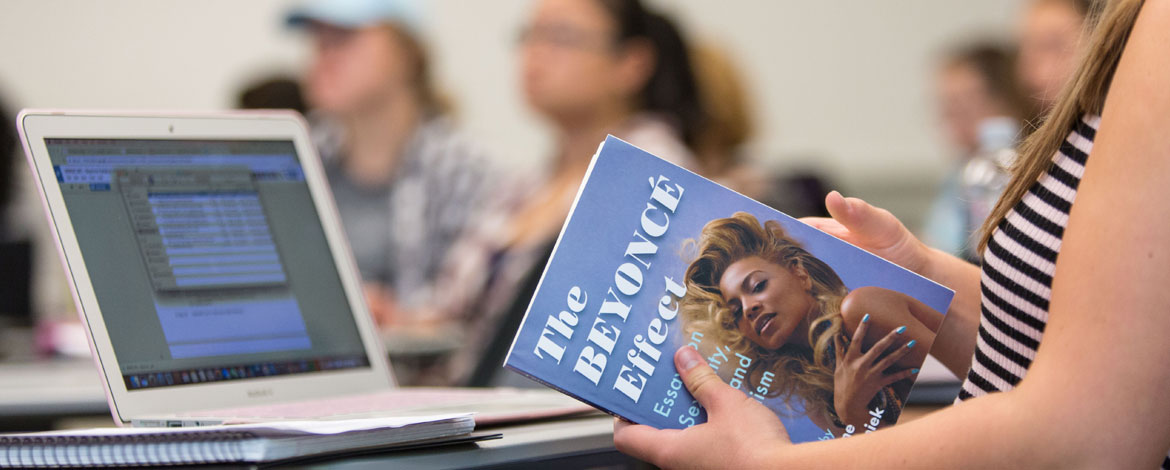Beyoncé and Black Feminist Theory

Image: A PLU classroom with a student holding a book titled, “The Beyoncé Effect.”
By Genny Boots '18
PLU Alum
Pacific Lutheran University students are people of many interests. Last fall semester, several courses illustrated how the university's curriculum caters to those eclectic interests.
One of these classes was Beyoncé and Black Feminist Theory.
“Who Beyoncé is for?” is not usually a question that you ask when you’re bopping your head to “Single Ladies,” or “Partition,” or any of the other hundreds of hit songs that have made Beyoncé a worldwide music icon.
But it was just one of the questions students tackled in the Women’s and Gender Studies course titled Beyoncé and Black Feminist Theory.
“The general premise of the course is to think about Beyoncé as a social, political and cultural figure through the lens of black feminist theory,” said Jennifer Smith, PLU’s first dean for inclusive excellence.
Smith co-taught the class with PLU’s Center for Gender Equity Outreach and Prevention Coordinator Tolu Taiwo.
“It’s going to be fun to co-teach together and engage students to ask really big questions about race, gender and sexuality through something we consume and enjoy,” Smith said.
Students studied Beyoncé based around her 2016 visual album “Lemonade.” The first half of the course was based on her work pre-Lemonade, and then the rest of the course was solely focused on the album.
The course used Patricia Hill Collins’ text Black Feminist Thought, with additional readings written only by women of color. Discussion themes included marriage, intimate relationship, family, body, and sexuality and empowerment.
The inspiration for the course came from the success of PLU community watch parties and discussions based around “Lemonade” and the 2016 album “A Seat at the Table” by Beyoncé’s sister, Solange Knowles.
“Because we’ve seen these discussions done well with a lot of interesting conversations especially surrounding black feminism,” Taiwo said, “we decided to create a course.”
One of the initial challenges for Smith and Taiwo was subduing students who are superfans of the music.
“I want students to take pop culture seriously as political texts,” Smith said. “Really thinking about issues of identity and power within our pop culture texts is a significant skill for students to have. Will it get you a job? Maybe not, but it will leave you a more informed and aware citizen.”




Social Media